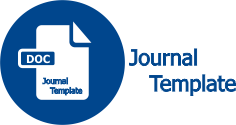Pengembangan Perangkat Pembelajaran Kimia SMA dalam Model Discovery Learning untuk Meningkatkan Sikap Ilmiah dan Hasil Belajar Peserta Didik
(1) Universitas Negeri Makassar
(2) Universitas Negeri Makassar
(3) Universitas Negeri Makassar
(*) Corresponding Author
DOI: https://doi.org/10.26858/cer.v7i1.53798
Abstract
Keywords
Full Text:
PDFReferences
Alferi, L., Brooks, P. J., Aldrich, N. J., Tenenbaum, H. R. (2011). Does Discovery Based Instruction Enchance Learning. Journal Education Psychology, 103(1).
Dahar, Ratna Willis. (2011). Teori Belajar dan Pembelajaran. Jakarta: Penerbit Erlangga.
Dewi, P. S. (2016). Perspektif Guru Sebagai Implementasi Pembelajaran Inkuiri Terbuka dan Inkuiri Terbimbing terhadap Sikap Ilmiah dalam Pembelajaran Sains. 01(2), 179-186.
Jaya, G.W. (2014). Penerapan Pendekatan Saintifik Melalui Metode Eksperimen pada Pembelajaran Fisika Siswa Kelas X MIA 3 SMA Negeri 1 Tenggarong. 16(2).
Marfaung, F., Sahyan, & Ridwan, A.S. (2016). Efek Pembelajaran Inquiry Training Berbantuan Peta Konsep dan Sikap Ilmiah terhadap Hasil Belajar Keterampilan Proses Sains Siswa. 13(1).
Shobirin Ma,as. (2016). Konsep dan implementasi Kurikulum 2013 di Sekolah Dasar. Yogyakarta: CV Budi Utama.
Article Metrics
Abstract view : 66 times | PDF view : 17 timesRefbacks
- There are currently no refbacks.
Jurnal dipublikasikan oleh: Program Studi Pendidikan Kimia
Program Pascasarjana Universitas Negeri Makassar
Alamat JL. Bonto Langkasa Gunung Sari Makassar, 90222
Kampus PPs UNM Makassar Gedung AD ruang 406 Lt 4, Indonesia.Phone 082393643737/085145825311/085242228678
CER UNM Indexed by:

Chemistry Education Review (CER) is licensed under a Creative Commons Attribution-NonCommercial 4.0 International License.










